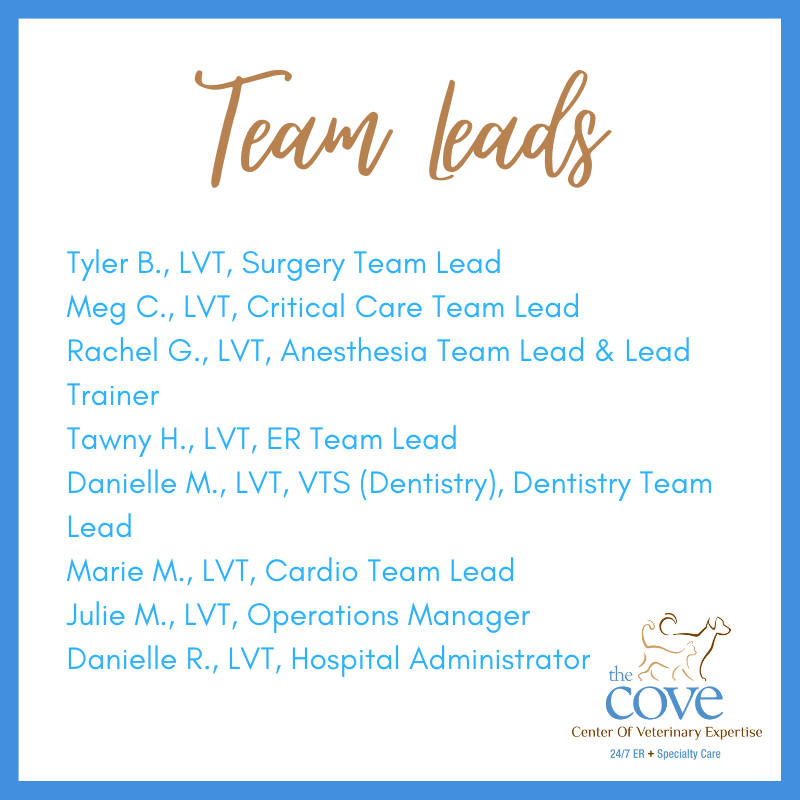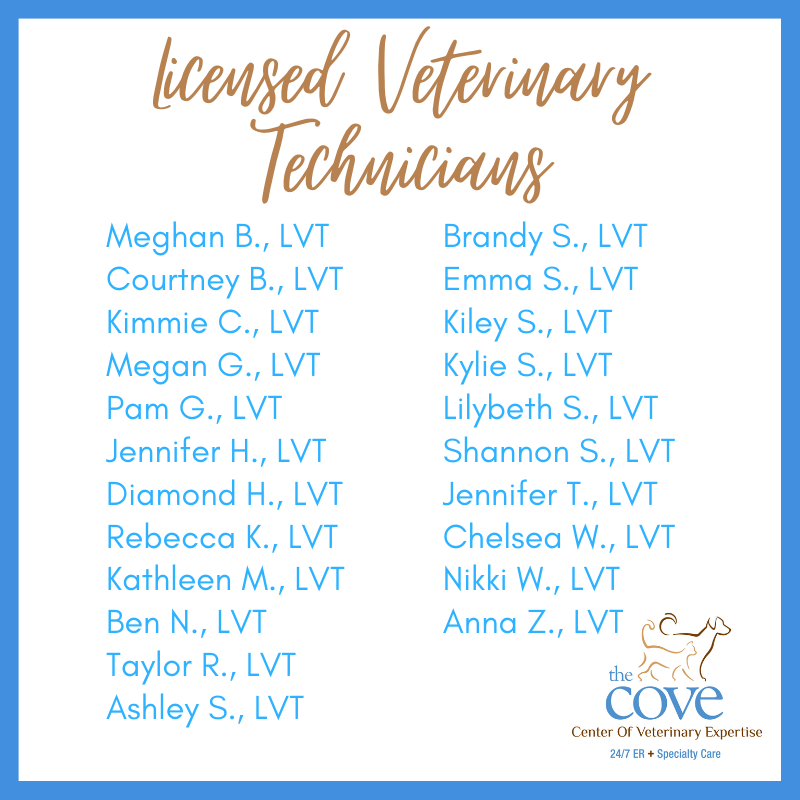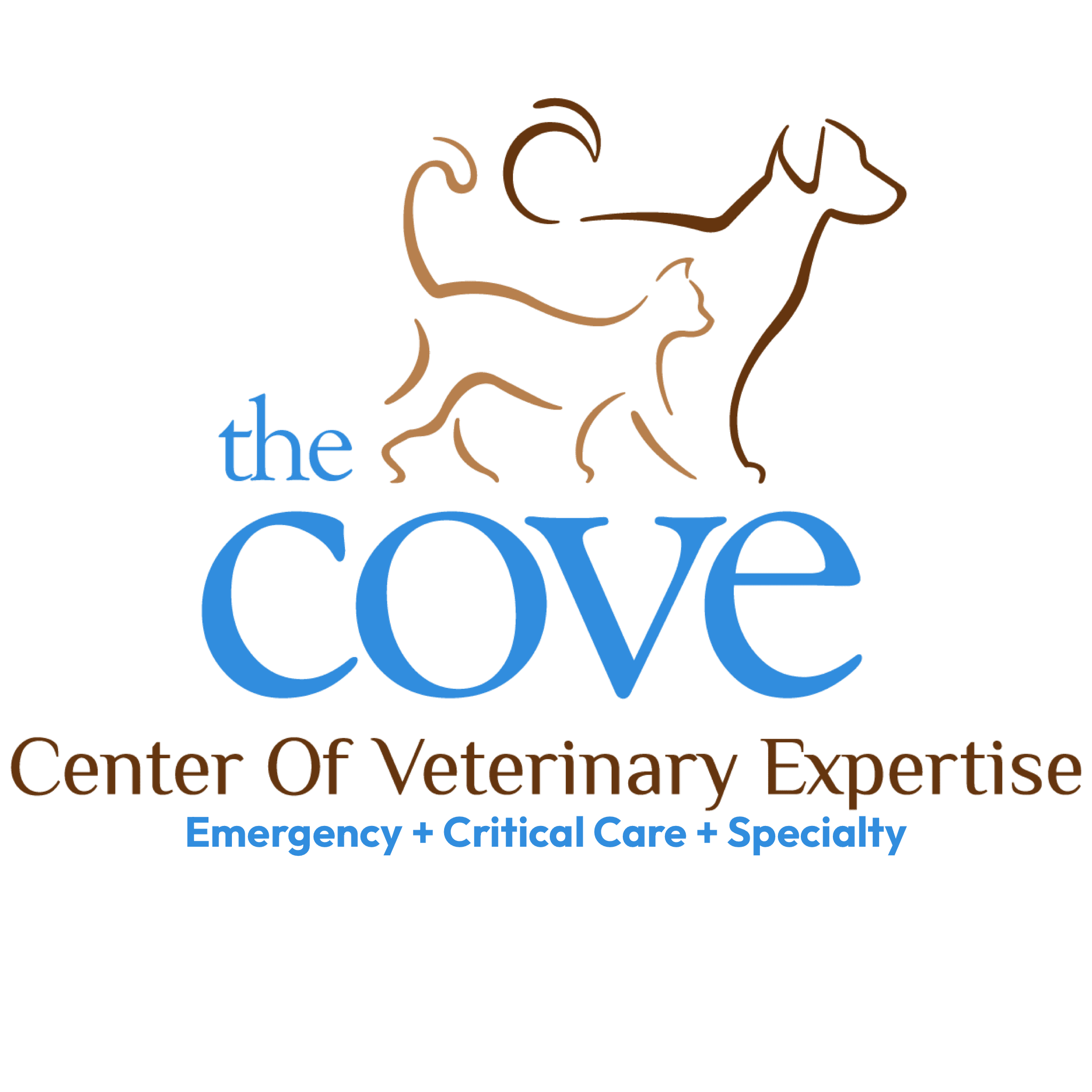Every year, we take the opportunity to celebrate our amazing team of veterinary technicians during Veterinary Technician Week (October 17-23). This year, we have more cause than ever. Our veterinary technicians are true heroes – essential workers who have shown compassion, courage, and dedication in the face of incredible adversity. It’s been a tough 18 months in the face of COVID-19, and we are humbled and proud to have these incredible people as part of our team here at The COVE.
What Is a Licensed Veterinary Technician?
Licensed veterinary technicians are an integral part of your pet’s health care team. In addition to taking your pet’s medical history and assisting in the exam room, veterinary technicians perform a multitude of jobs in the hospital, including as:
- Laboratory technician
- Surgical assistant
- Pharmacy technician
- Anesthesiologist
- Grief counselor
- Radiography technician
- ER nurse
- Phlebotomist
- Dental hygienist
- Patient and family liaison
Bottom line, they wear a wide variety of hats to support our veterinarians and the health of your pet.
- Daniellem Lvt
- Julie Lvt
- Meg Lvt
- Moore Lvt
- Rachel Lvt
- Tawny Lvt
- Tyler Lvt
Incidentally, what’s the difference between LVT, RVT, and CVT? The various initials are simply a matter of licensing or certification, which depends on the state in which the technician works. Different states have different naming conventions. An RVT is a registered veterinary technician, an LVT is a licensed veterinary technician, and a CVT is a certified veterinary technician. They are all the same thing. Here in Virginia, we use LVT.
How to Become a Veterinary Technician
Veterinary technicians complete a significant amount of education to become certified, just as a human medicine nurse does (but unlike a human nurse, a veterinary technician must know about multiple species).
Veterinary technicians typically have two to four years of secondary education and an Associates or Bachelors degree in Veterinary Technology. They must then pass a rigorous four-hour examination administered by the American Association of Veterinary State Boards to become credentialed, and complete continuing education credits annually to maintain their license. There are over 230 AVMA-accredited programs throughout the United States, as well as a few accredited online distance learning programs.
Veterinary technicians can choose to further their education and become a specialist in a wide variety of specialties from anesthesia to animal behavior, emergency and critical care to internal medicine. They can also work in places such as zoos, aquariums, the military, or research laboratories, and are often among first responders when there is a disaster, helping animals in trouble.
If all that sounds like a lot of work, expertise, and experience, it is. Veterinary technicians are essential team members here at The COVE. Their compassionate care of every patient and strong relationships with our patient’s families are indispensable to the work we do in caring for your pet. This week, tell your veterinary technician “Thank you.” We know we will.
Meet The COVE’s Talented and Compassionate Team of Licensed Veterinary Technicians
We are proud to have these talented licensed veterinary technicians (LVT) on our team.


About Us
The COVE’s veterinarians and staff wholeheartedly embrace the core values of community, collaboration, commitment, compassion, and integrity. This focus ensures that pets, the people who love them, and their primary care veterinarians have as positive and affirming a healthcare experience as possible, regardless of the circumstances that bring us all together.







